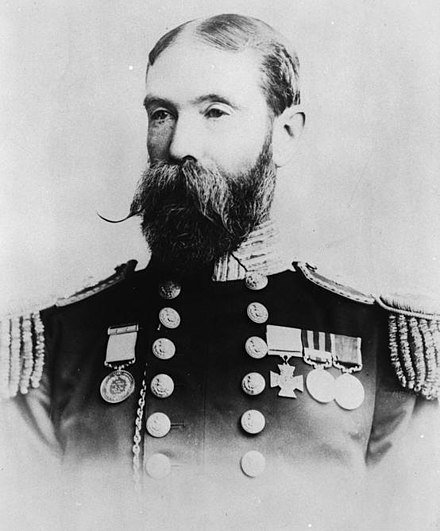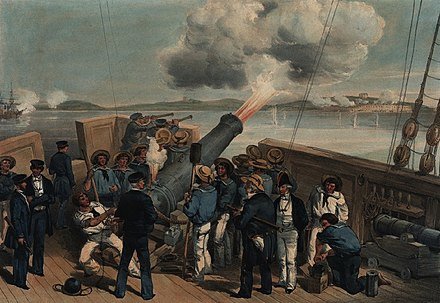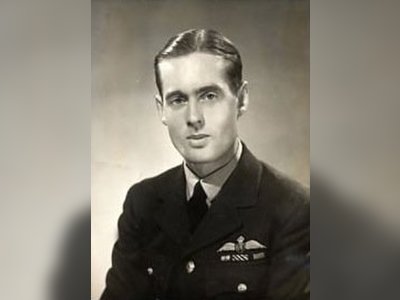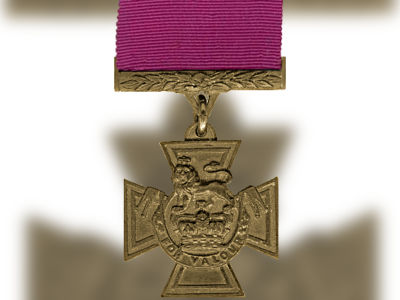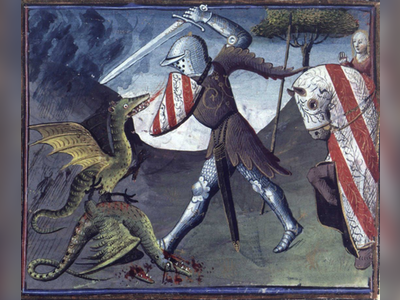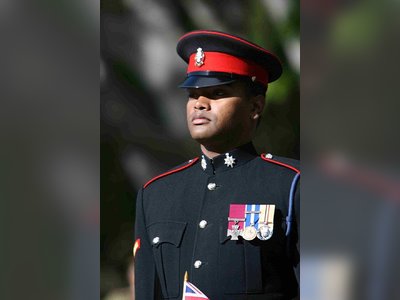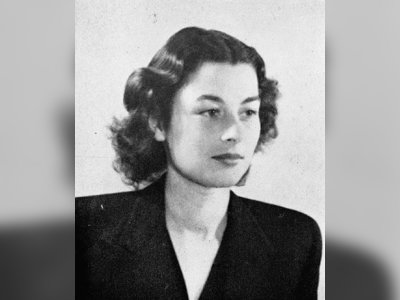British Heritage
Remember, Cherish, Learn.
beta
Charles Davis Lucas
A Hero of the High Seas and the Genesis of the Victoria Cross.
Rear Admiral Charles Davis Lucas VC, born 19 February 1834, is a pivotal figure in British military history and a testament to the valour that permeates the British heritage. An Irishman who served as an officer in the Royal Navy, Lucas was the first recipient of the Victoria Cross. This honour, the highest award for gallantry in the face of the enemy that can be awarded to British and Commonwealth forces, was bestowed upon Lucas for his actions during the Battle of Bomarsund during the Crimean War. His illustrious naval career culminated in his promotion to rear admiral, and his legacy is an enduring part of the maritime narrative of the United Kingdom.
Lucas was born in Druminargal House, Poyntzpass, County Armagh, a historical region in Northern Ireland. At the tender age of 13, he enlisted in the Royal Navy in 1848, initiating a career at sea that would span multiple decades. He served aboard HMS Vengeance, where he experienced the tumult of the Second Anglo-Burmese War of 1852–53 aboard the frigate Fox at Rangoon, Pegu, and Dalla. These early experiences shaped Lucas into a skilled sailor and by the age of 20, he had risen to the rank of mate.
Lucas etched his name in history during the Battle of Bomarsund of the Crimean War, where his heroics won him the first Victoria Cross. On 21 June 1854, Lucas was aboard the HMS Hecla, part of a British fleet bombarding the fort at Bomarsund in Åland off Finland. In the heat of the battle, a live shell, its fuse still hissing ominously, landed on the Hecla's upper deck. The crew was ordered to take cover, but Lucas, driven by instinct and courage, dared to stand. He seized the shell and threw it overboard, where it exploded in a roar of sound and fury.
Lucas's quick-thinking and courage prevented a disaster aboard the Hecla, saving many lives. Recognising the enormity of his actions, his commanding officer promptly promoted him to lieutenant, marking a significant milestone in his career.
Lucas's distinguished career saw him serve on several ships, including the Calcutta, Powerful, Cressy, Edinburgh, Liffey, and Indus. He was promoted to commander in 1862 and later commanded the experimental armoured gunboat Vixen in 1867. His career continued to flourish, culminating in a promotion to captain in 1867. He retired on 1 October 1873, but was later promoted to rear admiral on the retired list in 1885. Throughout his service, he was awarded the India General Service Medal with the bar Pegu 1852, the Baltic Medal 1854–55, and the Royal Humane Society Lifesaving Medal.
Beyond his military career, Lucas's personal life bore witness to a contented existence. In 1879, he married Frances Russell Hall, daughter of Admiral William Hutcheon Hall, who had been captain of Hecla during the 1854 action. Together, they had three daughters. Lucas served for a time as a Justice of the Peace for both Kent and Argyllshire, contributing to civil society until his death at Great Culverden, Kent, on 7 August 1914. He is buried at St Lawrence's Church, Mereworth, Maidstone, Kent.
Lucas's campaign medals, including his Victoria Cross, are on display at the National Maritime Museum in Greenwich, London. Intriguingly, the displayed medals are not the original ones - the originals were accidentally left on a train and were never recovered. The replacements, though lacking inscriptions on the reverse of the Victoria Cross, continue to be a testament to Lucas's exemplary service.
Rear Admiral Charles Davis Lucas VC, through his extraordinary bravery and distinguished career in the Royal Navy, has left a lasting impact on British heritage. His actions during the Battle of Bomarsund stand as the first deed to be awarded the Victoria Cross, setting a high bar for gallantry for all future recipients. His life and service are enduring reminders of the courage, discipline, and commitment that define the ethos of the British armed forces.
Early Life and Naval Career
Lucas was born in Druminargal House, Poyntzpass, County Armagh, a historical region in Northern Ireland. At the tender age of 13, he enlisted in the Royal Navy in 1848, initiating a career at sea that would span multiple decades. He served aboard HMS Vengeance, where he experienced the tumult of the Second Anglo-Burmese War of 1852–53 aboard the frigate Fox at Rangoon, Pegu, and Dalla. These early experiences shaped Lucas into a skilled sailor and by the age of 20, he had risen to the rank of mate.
The Deed that Won the Victoria Cross
Lucas etched his name in history during the Battle of Bomarsund of the Crimean War, where his heroics won him the first Victoria Cross. On 21 June 1854, Lucas was aboard the HMS Hecla, part of a British fleet bombarding the fort at Bomarsund in Åland off Finland. In the heat of the battle, a live shell, its fuse still hissing ominously, landed on the Hecla's upper deck. The crew was ordered to take cover, but Lucas, driven by instinct and courage, dared to stand. He seized the shell and threw it overboard, where it exploded in a roar of sound and fury.
Lucas's quick-thinking and courage prevented a disaster aboard the Hecla, saving many lives. Recognising the enormity of his actions, his commanding officer promptly promoted him to lieutenant, marking a significant milestone in his career.
Later Career and Personal Life
Lucas's distinguished career saw him serve on several ships, including the Calcutta, Powerful, Cressy, Edinburgh, Liffey, and Indus. He was promoted to commander in 1862 and later commanded the experimental armoured gunboat Vixen in 1867. His career continued to flourish, culminating in a promotion to captain in 1867. He retired on 1 October 1873, but was later promoted to rear admiral on the retired list in 1885. Throughout his service, he was awarded the India General Service Medal with the bar Pegu 1852, the Baltic Medal 1854–55, and the Royal Humane Society Lifesaving Medal.
Beyond his military career, Lucas's personal life bore witness to a contented existence. In 1879, he married Frances Russell Hall, daughter of Admiral William Hutcheon Hall, who had been captain of Hecla during the 1854 action. Together, they had three daughters. Lucas served for a time as a Justice of the Peace for both Kent and Argyllshire, contributing to civil society until his death at Great Culverden, Kent, on 7 August 1914. He is buried at St Lawrence's Church, Mereworth, Maidstone, Kent.
The Medals and Legacy
Lucas's campaign medals, including his Victoria Cross, are on display at the National Maritime Museum in Greenwich, London. Intriguingly, the displayed medals are not the original ones - the originals were accidentally left on a train and were never recovered. The replacements, though lacking inscriptions on the reverse of the Victoria Cross, continue to be a testament to Lucas's exemplary service.
Conclusion: A Lasting Impact on British Heritage
Rear Admiral Charles Davis Lucas VC, through his extraordinary bravery and distinguished career in the Royal Navy, has left a lasting impact on British heritage. His actions during the Battle of Bomarsund stand as the first deed to be awarded the Victoria Cross, setting a high bar for gallantry for all future recipients. His life and service are enduring reminders of the courage, discipline, and commitment that define the ethos of the British armed forces.
- Charles Davis Lucasen.wikipedia.org
